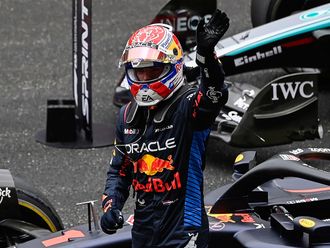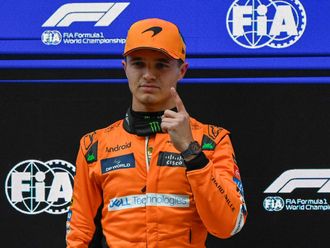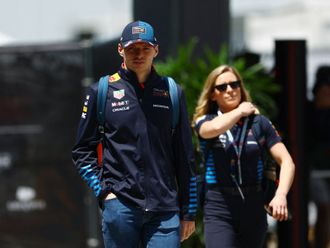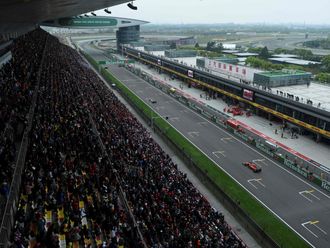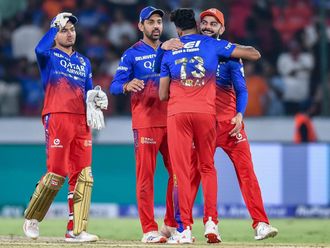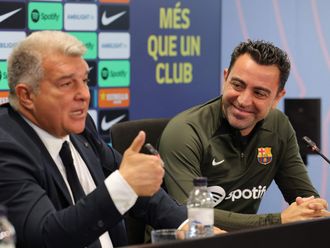An anonymous face behind the scenes in Formula One has come to the fore to outline an urgent mapping of the sport’s future on an expanded global front.
Board member Sir Martin Stuart Sorrell, habitually content to hover in the shadow of supremo and commercial boss Bernie Ecclestone — if not always silently — has opted to go public and has emerged with an agenda to advance the image of F1.
At 75, the mega-wealthy businessman, 14 years junior to 85-year-old Ecclestone, still growing strong despite the intensity of the sport’s demands, reckons the formula should be in pursuit of expanding into fast growing markets, a target area he calls the “Next Eleven”.
The countries in his sights are Bangladesh, Egypt, Indonesia, Iran, Mexico, Nigeria, Pakistan, The Philippines, Turkey, South Korea and Vietnam, zones all picked out by giant universal investment bank Goldman Sachs as having the increasing promise of being the world’s richest economies as time goes by.
Sir Martin’s wake-up call, with his unflinching gaze fixed on a flow of fortunes into the F1 coffers, leaves no room for argument and not even single-minded Ecclestone, a firm friend but not always an agreeing confederate, backs down from the London businessman’s plunge towards new horizons.
Sir Martin, with ancestors from Russia, Romania and Poland, garnered his appreciation of money matters and their sports connection from his formative business and promotional days working for the legendary Mark McCormack sports agency and then Saatchi and Saatchi.
He points out: “The next billion consumers are not going to come from the United States or Western Europe — they are coming from Asia, Latin America and Africa.”
He adds: “If you run a country and want to put it on the global map you do not have too many choices. You can get the Olympics, the World Cup in football or a Formula One grand prix. And the first two are only every four years. And you have them only once.
“We are every year. I would every time go for Asia, Latin America, Africa and the Middle East because that is what our clients really want.”
But he does not stop there and gathering momentum in his enthusiasm for expansion, he stresses: “F1 should definitely stay in China and return to India. And why not take a look at Indonesia? In 25 years’ time it will be the third biggest country in terms of population in the world.”
He was also quick to heap praise on Ecclestone’s self-inflicted workload and tireless efforts to underpin F1’s status and load its bank balance. They may have had their differences, mainly because of Sir Martin’s criticisms of some of Ecclestone’s outspokenness and controversial attitudes, but he claims he is not setting himself up to takeover the long-running kingpin’s F1 realm.
And he goes on: “Bernie’s entrepreneurial genius has created a $1.7billion (Dh6.2 billion) business and he is impossible to replace. He is still top of his game.”
Then, with typical caution cloaked in reserve, he adds: “But we have to consider life after Bernie.”
Okay, could and should two people run the sport — maybe him and Bernie together? “No,” he insists,” when you have two people challenging for the same job and you keep them both and call them co-CEOs, it can be a fiasco, a merger of equals. And there is no such thing.
“Dreams of dual leadership leave limited chances of success.”
And he ends with a reminder of his aims: “I would say F1 is too tactical and not strategic enough — and that brings us back to the digital issue: you may have to invest in order to gain and sacrifice some short term effects in order to ensure high returns in the future.”
So there you have revelations from the very inner circle behind the grand prix scenes. I wonder if Sir Martin, having had his rare say, will now return back to anonymity. Somehow, I don’t think he will. Watch out Bernie.


